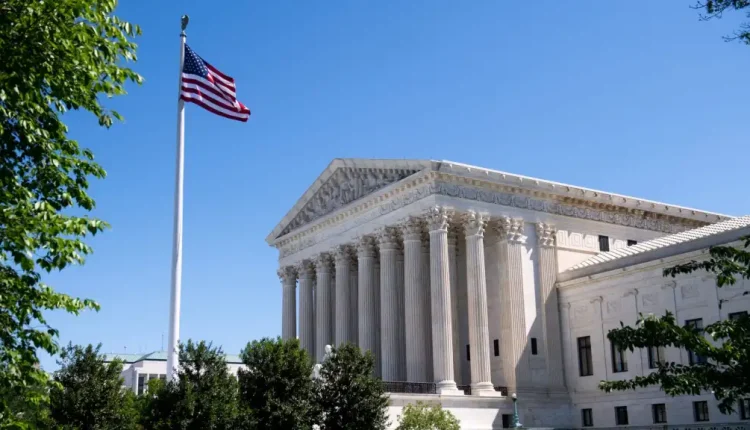U.S. Supreme Court Rejects Trump’s $2 Billion Foreign Aid Freeze
By Kardo Roj
WASHINGTON, D.C. (North Press) – The U.S. Supreme Court ruled late Wednesday against the Trump administration’s attempt to maintain a freeze on nearly $2 billion in foreign aid, marking a legal setback for the former president and his budget-cutting agenda.
In a 5-4 decision, the court upheld a lower court ruling that requires the administration to resume payments under contracts signed by the U.S. Agency for International Development (USAID) and the State Department. The decision comes amid growing concerns over the impact of aid cuts on critical global humanitarian programs.
The ruling saw Chief Justice John Roberts and Justice Amy Coney Barrett—both conservative-leaning—siding with the court’s three liberal justices. Their votes proved decisive in striking down Trump’s bid to block the funding, reinforcing judicial oversight on executive spending powers.
In its ruling, the court emphasized that the federal judge who initially ordered the resumption of payments must clarify the specific obligations the government must fulfill under existing contracts.
The decision represents a blow to Trump and his key adviser, billionaire Elon Musk, both of whom have advocated for aggressive reductions in government spending. The administration has argued that foreign aid should be significantly curtailed to prioritize domestic infrastructure and economic initiatives.
Despite their efforts, the Supreme Court’s ruling underscores legal constraints on the executive branch’s ability to unilaterally freeze funds that have been contractually committed.
The Trump administration’s halt on foreign aid had disrupted numerous humanitarian projects, including food security initiatives, health programs, and disaster relief efforts worldwide. Aid organizations have warned that delays in funding have already led to setbacks in life-saving operations in several regions, particularly in conflict zones and developing nations.
With the ruling, USAID and the State Department are now required to reinstate payments, providing relief to global aid efforts that had been left in limbo. However, the administration is expected to explore alternative avenues to curtail foreign assistance, potentially setting up further legal and political battles.
The ruling sets the stage for continued clashes over federal spending priorities as Trump prepares for further legal and legislative maneuvers to reshape U.S. foreign policy. Meanwhile, aid agencies and diplomatic missions will be closely monitoring how quickly the frozen funds are disbursed and whether additional hurdles emerge.
As the debate over America’s role in global aid continues, the Supreme Court’s decision reaffirms judicial checks on executive authority—highlighting the enduring struggle between presidential power and institutional oversight.

